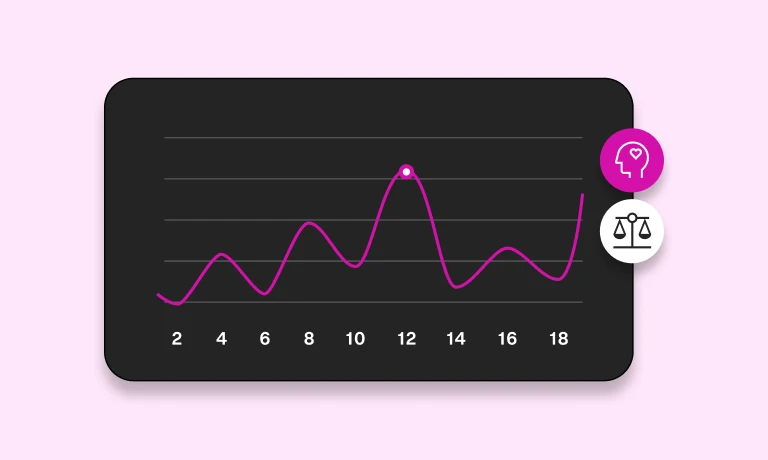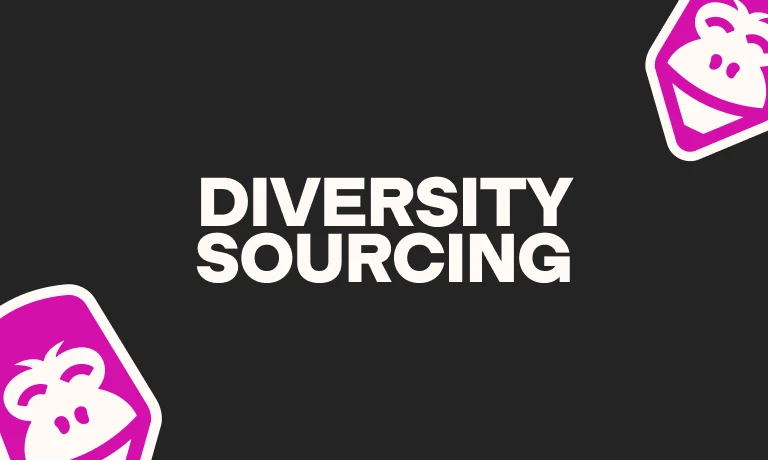Hiring a sales consultant to help you build and refine your sales processes will have a huge impact on your company’s profits – but you need to ensure you’re able to hire the right person.
A sales consultant will develop your selling strategies and guide your sales team towards achieving their goals – and your business objectives. Their role has a strong influence on the way your clients perceive your products, services, and brand.
Hiring the wrong sales consultant can have a negative impact on your business and lead to a drop in sales.
To make sure you’re choosing a sales consultant who’ll boost your brand’s credibility and your company’s success, look for a candidate who:
Understands fundamental sales principles
Has all the essential skills for the role, such as B2B lead generation, negotiation, and more
Is aligned with your company’s values and mission
This step-by-step guide on how to hire a sales consultant will help you with that task. We’ll give you all the necessary information for hiring the right sales consultant, from how to evaluate their skills objectively to where you can find qualified sales consultants and how much you can expect to pay.
Table of contents
- What is a sales consultant?
- Sales consultant hard skills
- Sales consultant soft skills
- How to test sales consultant skills
- Sales consultant interview questions
- Where to find a sales consultant
- How much does a sales consultant cost?
- Sales consultant job description template
- Implement a data-driven hiring process to improve your sales
What is a sales consultant?
Let’s start by figuring out exactly what you’re looking for.
Think of your sales consultant as an ally – or a coach – to your sales team. To enable the team to reach their full potential, they work alongside managers from the sales and marketing departments to build effective selling strategies that will foster higher productivity and increase your company’s outreach and revenue.
Sales consultants are usually hired when there is an issue with the productivity of your sales team or when you want to optimize your sales process. They are experienced in developing and sustaining successful selling processes – and in identifying issues and roadblocks.
A highly-qualified sales consultant will know how to guide your sales team and enable each team member to achieve their best work and become more efficient and productive.
Some of the duties of a sales consultant include to:
Build a detailed inbound and/or outbound selling strategy that is tailored to your company’s needs and objectives
Gather and analyze information about your sales team so they can craft strategies that lean into its strengths
Identify the weak spots in your current sales process and help you address them
Train sales representatives to use new technology, tools, and strategies that will boost your sales
Define a clearer ideal customer profile (ICP)
Boost your team’s knowledge of your product and competitors
Optimize the record-keeping process
Create inbound email templates and workflows
Write cold-calling scripts
Two types of companies might look to hire a sales consultant:
Early-stage businesses or startups without an established sales strategy
Established companies with a vetted sales process that could be improved
Early-stage companies need a competitive and assertive generalist who can work with whatever you throw at them to create an efficient sales process.
This is a critical hire for your business: Your sales consultant will lay the groundwork for future sales workflows and processes. Any new business requires a competitive sales team to flourish.
Larger companies that have an established sales process would benefit more from seasoned sales consultants who specialize in a particular field, aspect, or approach to selling – for example, hybrid B2B sales (which, according to McKinsey & Company, is the future of B2B sales).
Or, otherwise said, if you’re working at a larger organization, you need someone who’s more detail-oriented and observant – and who has industry-relevant experience.
Sales consultant hard skills
To be successful in their role, sales consultants need to have a number of hard skills, such as:
Sales management knowledge
Sales consultants don’t only have to be good at selling products. They must be able to build a strategy based on their sales experience and knowledge of the market and implement it in a way that is easy for the sales team to follow.
A consultant with good sales management knowledge can:
Create an effective sales strategy
Implement an optimized sales enablement process
Help the sales team be more productive and increase your company’s revenue
Working with data
A skilled sales consultant is results-oriented. They focus on data they collect and are able to analyze and interpret it effectively to evaluate progress and create relevant solutions and approaches.
This means they can:
Read and analyze metrics
Perform basic data interpretation
Identify patterns
Technical and software skills
Sales consultants must be able to use the software tools that your sales team works with.
This includes various technology solutions such as:
CRM (customer relationship management) platforms such as Salesforce, HubSpot, or Pipedrive
Presentation programs such as Microsoft Powerpoint, Google Slides, or Canva
Sales analytics and forecasting tools, such as Gong, Clari, or Tableau
Research skills
Sales consultants must know how to develop efficient strategies based on data they’ve analyzed – but to collect and interpret relevant data, they must have well-developed research skills.
This means sales consultants need to know how to:
Locate and extract information
Filter information based on its credibility and relevance
Think critically about the data they collect
Draw meaningful conclusions
Keep track of any changes or updates
The best insights on HR and recruitment, delivered to your inbox.
Biweekly updates. No spam. Unsubscribe any time.
Sales consultant soft skills
The future is now more uncertain than ever: The age of AI and automation is here. Many tasks are being automated and some hard skills are rapidly becoming redundant.
With such rapid shifts in every industry, hiring is no longer simply about hiring a workforce with the right skills; it’s about finding talent who has the ability to learn new skills quickly.
This is why soft skills such as curiosity, communication, flexibility, and critical thinking are becoming increasingly important – they signify a high learning aptitude. According to a survey by McKinsey & Company, HR professionals are having a hard time recruiting candidates with strong soft skills, such as communication, problem solving, and innovation.
A part of the problem is that soft skills are harder to evaluate. This is why pre-employment skills testing can transform your entire hiring process – it helps you objectively identify candidates with strong soft skills.
Some of the soft skills you should be looking for in a sales consultant include:
Communication
A sales consultant should be able to communicate clearly and concisely while using professional etiquette. They must stay in frequent contact with managers, clients, and coworkers, and be able to maintain a strong working relationship of mutual understanding with all of them.
To be a good communicator, one must be able to:
Express themselves effectively verbally or in written text
Listen attentively
Pay attention to details
Understand non-verbal cues
Problem solving
To build a successful sales strategy, sales consultants must be able to identify and address issues such as:
Conflict within teams
Outdated or inefficient sales processes
Market shifts that impact your industry and sector
This is why problem solving is a crucial skill for sales consultants.
Business ethics
Ethical behavior is essential for the success of your business – and using unethical sales strategies can rapidly sink your brand.
Hiring a sales consultant with a strong ethical compass and a solid understanding of key compliance principles can have a huge positive impact on your organization.
Critical thinking
The ability to think critically is one of the skills that a sales consultant has to use every day. For this, they need to be able to:
Accurately pinpoint issues
Examine and scrutinize information without making biased assumptions
Draw objective conclusions
Self-evaluate and learn from their mistakes
How to test sales consultant skills
Using a variety of methods to evaluate your candidates’ skills can make for a stronger, data-driven hiring process. Sifting through resumes is not enough, because they don’t give you a clear picture of the candidates’ actual proficiency in the relevant skills for the role of a sales consultant.
Here are two methods that will help you identify the best sales consultant for your company.
1. Pre-employment skills testing
Pre-employment skills testing is an unbiased, objective method for evaluating your candidates’ skills.
With TestGorilla, you can combine up to five skills tests in an assessment. Here’s our selection of some of the most relevant skills tests to use during your sales consultant recruitment process:
Sales management: This test is specifically designed for the B2B manufacturing and software and services industries. It evaluates applicants’ ability to develop sales strategies and manage territories and is a good fit for any leadership role in sales.
Business judgment: This test identifies candidates who have a good nose for value and is ideal for sales consultants and business executives.
Working with data: Find candidates who can handle data correctly and perform basic data analysis.
Salesforce CRM: Salesforce is one of the most popular software tools for sales consultants; with this test, you can evaluate candidates’ proficiency in it.
HubSpot CRM: If you’re using HubSpot CRM to manage your sales process, this test will help you find consultants who know it inside-out.
Outside sales: Evaluate applicants’ B2B outbound sales techniques with the help of this test.
Communication: Sales consultants need to be excellent communicators to be successful. With this test, you can make sure your next hire knows how to communicate clearly and effectively.
Problem solving: This test enables you to assess your applicants’ ability to identify and solve issues.
Critical thinking: Critical thinking is among the most important skills for any sales professional in a leadership or consulting role.
Business ethics: Make sure your next hire has a strong understanding of business ethics.
2. Conducting an interview
Once you assess all applicants’ skills, invite your best talent to an interview to gain a deeper understanding of their qualities and strengths. Asking customized questions that are specific to the job role enables you to assess your candidates’ knowledge and preparedness for the role.
This is also a good way to evaluate some of their soft skills first-hand. You can take some inspiration from our list of 34 sales manager interview questions – or check our sample interview questions below.
Sales consultant interview questions
Use the below sample interview questions to evaluate sales consultants during interviews:
What approach do you use when analyzing a company's sales process and performance?
Can you provide an example of a time you needed to rebuild a sales process from the ground up? What was the reason you needed to do this and how did you do it?
Which sales methodologies do you follow and why?
What metrics do you believe are crucial for monitoring a sales team's performance?
Describe a time you integrated a CRM system or another sales tool into a company's sales strategy. How did it improve their processes?
What training methods do you use to ensure a sales team can follow your strategies?
Can you provide an example of a unique or innovative solution you've implemented for a sales team?
How do you handle conflict between sales managers and team members?
How do you make sure that the strategies you recommend are scalable?
If the leadership team is resistant to changes in the sales process, what would you do?
If you need more ideas, check out our 28 sales aptitude interview questions and 101 B2B sales questions to ask applicants.
Where to find a sales consultant
Sales consultants are hired to optimize the selling process and boost your productivity by crafting a sales strategy that’s tailored to your business’ needs. They’re usually appointed for a short period or booked for consultations at regular intervals.
You can hire freelance sales consultants at generalist or specialized platforms. Here’s a short list of our top recommendations:
ZipRecruiter: This platform allows you to post job listings to over 100 job sites with one submission.
Upwork: On Upwork, you can source freelancers from different backgrounds and with varied expertise.
PeoplePerHour: The platform has a completely free trial and has over 250 million freelance workers.
Consultport: This is a platform that specializes in sourcing highly qualified consultants in different domains. One of its benefits for companies is its “no risk, pay only if satisfied” policy.
How much does a sales consultant cost?
According to Payscale, the average base salary for a sales consultant in the US is $59,867. However, it can vary anywhere between $31,000 and $115,000.
A sales consultant’s salary can depend on factors such as:
Their level of education
Years of experience
The cost of living in the candidate’s location
In-demand skills
The industry they specialize in
Sales consultant job description template
[Your company name] is looking to hire a highly driven and experienced sales consultant to empower our sales team to reach their full potential.
The sales consultant will be pivotal in assessing, analyzing, and reinventing our sales processes. With a sharp analytical mind and a thorough understanding of sales methodologies, the ideal candidate will craft strategies that improve the efficiency of our sales team, ensuring it can meet and exceed its targets efficiently.
We’re looking to hire a consultant for a period of [length of time, f.e. three to six months].
Key responsibilities
As our sales consultant, you will:
Collaborate with the sales team to identify inefficiencies and areas of improvement within our current processes
Conduct in-depth analysis of sales data to pinpoint trends, strengths, and risks
Design and implement tailored sales strategies that enhance productivity, reduce costs, and boost revenue
Offer actionable solutions, from sales training programs to CRM system integration
Stay updated on the latest industry trends, technologies, and methodologies
Provide hands-on training and workshops to teach sales best practices
Measure and report on the success of implemented strategies, refining approaches as needed
Qualifications
Bachelor's degree in Business, Marketing, or a related field; relevant sales certifications are a plus
[Number of years] of proven experience in sales consultancy or sales management roles
In-depth understanding of sales methodologies, process optimization, and CRM systems
Excellent analytical, critical-thinking, and problem-solving skills
Strong communication and interpersonal abilities
Ability to handle multiple projects simultaneously and work within tight deadlines
Passionate about driving results
How to apply
[Describe your application process here; mention skills tests, if you’ll use them]
Implement a data-driven hiring process to improve your sales
Your profits largely depend on your sales processes and the team you build. Creating an efficient sales strategy to boost your team’s productivity is a great way to increase your company’s revenue. One of the best ways to do that is to hire a qualified sales consultant.
Make sure you’re hiring smartly – a bad hire, especially when it comes to someone who directly impacts your sales, can come at a high cost. Thankfully, with pre-employment skills testing you can easily mitigate this risk.
Skills assessments enable you to find the right sales consultant for your business quickly and efficiently – and make the best hiring decision.
Sign up for TestGorilla’s free plan today to hire a skilled sales consultant who’ll transform your sales process and help you reach your business goals.
You've scrolled this far
Why not try TestGorilla for free, and see what happens when you put skills first.



















